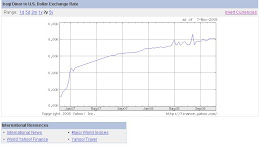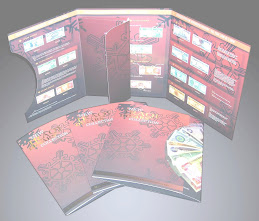Veteran analyst Dale Steffes said his estimate was based on an oil price of $60 a barrel, $10 a barrel production costs, and the assumption that 10 million Iraqis would be old enough to qualify for a share of their country's oil wealth.
Iraq produces 2.2 million barrels of oil a day and exports 1.5 million barrels, according to the Iraq Study Group Report issued earlier this month.
Estimates for current average annual income in Iraq vary widely, but top out at around $1,500 a year.
Steffes, who has been urging the distribution of Iraqi oil money in his reports since 2004, said in an interview the best way to administer the program may be to give the money to those who register to vote and maintain a bank account, thus promoting social involvement and stability.
"Once people understand that the money is coming to them, they will want to protect that income stream and have some kind of government that can settle disputes," he said.
Opponents say distributing the money would be difficult due to logistical and corruption problems, but the idea has picked up advocates as the United States looks for ways to stop the chaos that has followed the 2003 invasion that toppled Iraqi leader Saddam Hussein.
In an op-ed piece in Monday's Wall Street Journal, two U.S. senators, Democrat Hillary Rodham Clinton and Republican John Ensign, urged President George W. Bush to form an "Iraq Oil Trust" modeled on the Alaskan Permanent Fund which gives Alaskan citizens a share of revenue produced from that state's oil fields.
"A distribution of revenues to all Iraqis would mean they have a greater incentive to keep the oil flowing, help the economy grow, reject the insurgency, and commit to the future of their nation," Clinton and Ensign wrote.(Source)AlSabah

